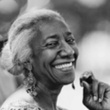High on the hog: a culinary journey from Africa to America
Description
Acclaimed cookbook author Jessica B. Harris has spent much of her life researching the food and foodways of the African Diaspora. High on the Hog is the culmination of years of her work, and the result is a most engaging history of African American cuisine. Harris takes the reader on a harrowing journey from Africa across the Atlantic to America, tracking the trials that the people and the food have undergone along the way. From chitlins and ham hocks to fried chicken and vegan soul, Harris celebrates the delicious and restorative foods of the African American experience and details how each came to form such an important part of African American culture, history, and identity. Although the story of African cuisine in America begins with slavery, High on the Hog ultimately chronicles a thrilling history of triumph and survival. The work of a masterful storyteller and an acclaimed scholar, Jessica B. Harris's High on the Hog fills an important gap in our culinary history. Praise for Jessica B. Harris: "Jessica Harris masters the ability to both educate and inspire the reader in a fascinating new way." -Marcus Samuelsson, chef owner of Restaurant Aquavit
More Details
9781608194506
Also in this Series
Published Reviews
Booklist Review
Acclaimed cookbook author Harris (The Africa Cookbook, 1998) tells the story of the African diaspora through food, from the foodstuff brought along with African slaves to barely maintain them on the Middle Passage to the undeniable imprint of African American cuisine on southern American and Caribbean food. She traces African foods (yams, okra, black-eyed peas, corn), flavoring, cooking methods, and food rituals from the abduction of Africans and enslavement in the Americas to travel throughout the American and European continents, recounting tribulations and joy. Along the way, she profiles famous and obscure but gifted cooks; cooks in the big houses of slave plantations; Pig Foot Mary, who grew wealthy from sales of food she cooked on a stove mounted on a baby carriage; chefs who served meals to presidents; and members of a cooperative of black hoteliers in Philadelphia in the nineteenth century. Along with historical context, Harris offers recollections from her own travels and ends with selected recipes. Photographs enhance this passionate perspective on the culinary history of the African diaspora.--Bush, Vanessa Copyright 2010 Booklist
Library Journal Review
A narrative history-and travel memoir-of African American cuisine by the author of numerous popular cookbooks. Harris explains the rich provenance of African America's foodways and meals. (c) Copyright 2010. Library Journals LLC, a wholly owned subsidiary of Media Source, Inc. No redistribution permitted.
Booklist Reviews
Acclaimed cookbook author Harris (The Africa Cookbook, 1998) tells the story of the African diaspora through food, from the foodstuff brought along with African slaves to barely maintain them on the Middle Passage to the undeniable imprint of African American cuisine on southern American and Caribbean food. She traces African foods (yams, okra, black-eyed peas, corn), flavoring, cooking methods, and food rituals from the abduction of Africans and enslavement in the Americas to travel throughout the American and European continents, recounting tribulations and joy. Along the way, she profiles famous and obscure but gifted cooks; cooks in the big houses of slave plantations; "Pig Foot" Mary, who grew wealthy from sales of food she cooked on a stove mounted on a baby carriage; chefs who served meals to presidents; and members of a cooperative of black hoteliers in Philadelphia in the nineteenth century. Along with historical context, Harris offers recollections from her own travels and ends with selected recipes. Photographs enhance this passionate perspective on the culinary history of the African diaspora. Copyright 2010 Booklist Reviews.
Library Journal Reviews
A narrative history—and travel memoir—of African American cuisine by the author of numerous popular cookbooks. Harris explains the rich provenance of African America's foodways and meals.
[Page 77]. (c) Copyright 2010. Library Journals LLC, a wholly owned subsidiary of Media Source, Inc. No redistribution permitted.




























